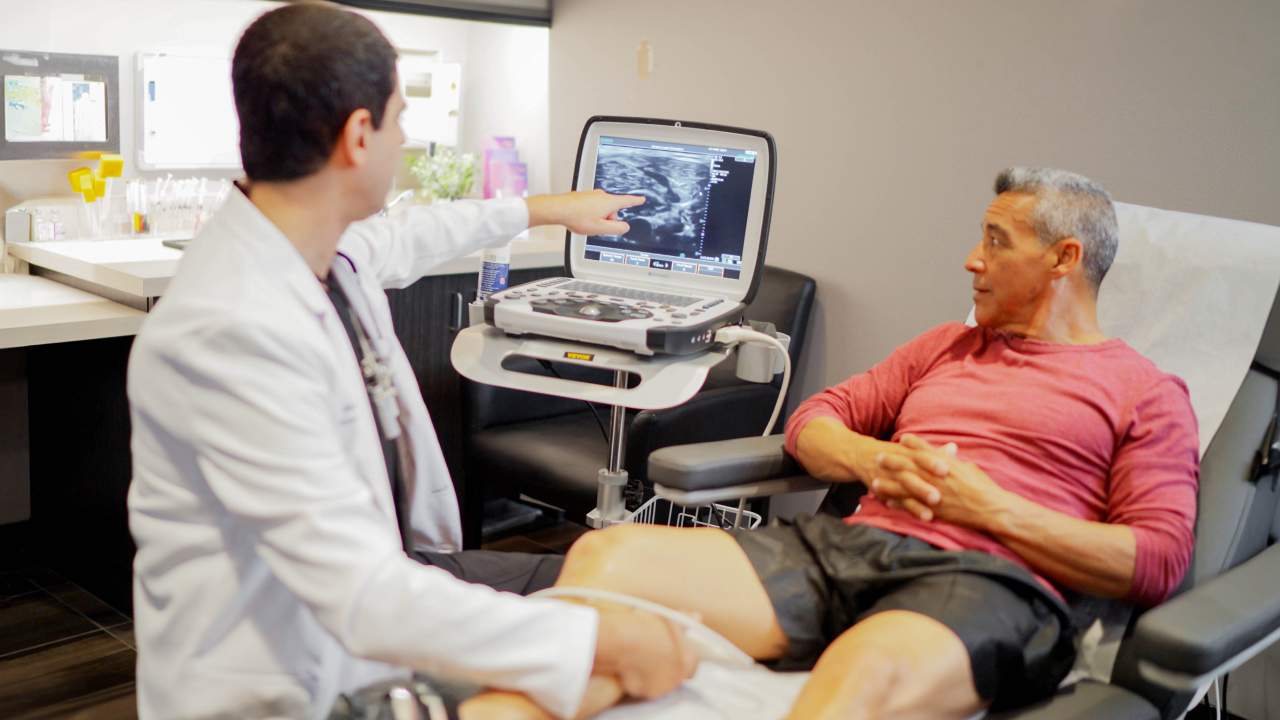If you’re considering treatment for varicose veins, spider veins, or venous insufficiency, you might be wondering, “Is medical insurance required to address these issues?” The thought of navigating the American healthcare system and its costs can be overwhelming. Questions about whether your condition qualifies as medically necessary or whether insurance companies in the USA will cover your treatment are common concerns for many patients.
At Vein Treatment Clinic, we understand how confusing the medical insurance system in the USA can be, and we’re here to guide you every step of the way. Whether you have insurance or not, our goal at Vein Treatment Clinic is to make high-quality care accessible and affordable. With vein clinics in New York, Long Island, California, Maryland, and New Jersey, we’ve helped countless patients regain their confidence and quality of life through personalized care.
This article will explore how medical insurance works for venous insufficiency, what’s typically covered, and your options for spider veins and varicose veins treatments.
Venous Insufficiency and Insurance Coverage
Chronic venous insufficiency occurs when the veins in your legs struggle to return blood to your heart effectively. This can lead to symptoms like leg pain, swelling, heaviness, and visible varicose or spider veins. Left untreated, venous insufficiency can progress to more serious conditions, including skin ulcers and blood clots.
Treatments for venous insufficiency often include minimally invasive procedures such as endovenous laser ablation, radiofrequency ablation, and VenaSeal. These treatments address the underlying condition, not just the visible veins. Meanwhile, treatments like sclerotherapy and ambulatory phlebectomy can treat the visible spider veins and varicose veins, typically after the underlying venous insufficiency has been treated. Since primary vein treatments are medically necessary, they’re usually covered by medical insurance.
Is Medical Insurance Required for Treatment?
No, medical insurance is not strictly required to treat venous insufficiency, but having it can reduce healthcare costs. Most insurance companies in the USA cover vein treatments deemed medically necessary. If your varicose or spider veins are causing pain, swelling, or other symptoms linked to venous insufficiency, your vein treatment will likely be covered.
Spider veins are often considered a cosmetic issue, so medical insurance does not always cover them. However, if you have spider veins, there’s a strong chance that you may also have underlying venous insufficiency. In such cases, sclerotherapy may be covered if it’s part of a broader plan to address underlying venous issues. At Vein Treatment Clinic, contact us to verify your insurance details, and we’ll work to maximize your insurance benefits.
How Much Does Insurance Cover?
The extent of insurance coverage depends on your plan, but for medically necessary treatments, most insurance companies in the USA will cover a significant portion, if not all, of the costs. During your initial consultation, vein specialists perform a duplex ultrasound to diagnose venous insufficiency and document the medical necessity of your treatment. This documentation is crucial for insurance approval.
At Vein Treatment Clinic, our team of insurance specialists ensures you’re fully informed about what your plan covers. If you’re uninsured, don’t worry—affordable payment plans and flexible financing options are available to help you receive the care you need.
The Role of the Medical Insurance System in the USA
The American healthcare system can be challenging, especially with insurance companies. Each plan differs in terms of coverage, deductibles, and co-pays. Our team handles the complexities of insurance approvals, saving you time and stress. For example, before your first appointment, we verify your insurance details to clarify your benefits upfront.
If you’re uninsured, you might wonder, “Do you need to have health insurance to seek vein treatment?” The answer is no. While insurance helps reduce healthcare costs, we offer alternatives to ensure all patients can access expert care.
Payment Options for Uninsured Patients
If you don’t have health insurance, you’re not alone. Many Americans face similar challenges due to gaps in the medical insurance system in the USA. At Vein Treatment Clinic, we believe everyone deserves access to high-quality care. We provide upfront cost estimates for uninsured patients, so you know exactly what to expect. Our vein doctors also work with you to find the most cost-effective vein treatment options without compromising quality.
Why Most Treatments Are Covered by Insurance
Most minimally invasive varicose vein treatments are covered by medical insurance because they address the root cause of venous insufficiency. For example:
- Endovenous Laser Ablation (EVLA) uses laser energy to seal off diseased veins.
- Radiofrequency Ablation (RFA) uses heat energy to close damaged veins.
- VenaSeal is a medical adhesive that seals off problematic veins.
These minimally invasive vein treatments are not just cosmetic—they improve circulation, alleviate symptoms, and prevent further complications. That’s why all insurance companies often approve them when they’re medically necessary. Learn about our vein treatments to explore which spider vein or varicose vein treatment might be right for you.
Why Choose Vein Treatment Clinic?
At Vein Treatment Clinic, we’re dedicated to making the process of receiving vein care as seamless as possible. Our vein clinics are led by Ivy League-educated, board-certified vein doctors specializing in minimally invasive vein treatments. Here’s what sets us apart:
- We diagnose the root cause of your symptoms with advanced duplex ultrasound technology.
- We work tirelessly to get insurance companies to approve your vein treatment.
- We have state-of-the-art vein clinics in New York, Long Island, California, Maryland, and New Jersey, so we’re never far from where you live or work.
So, is medical insurance required to treat venous insufficiency? While it’s not mandatory, having insurance can make treatment more affordable and accessible. Most vein treatments are covered by insurance when they’re medically necessary, and at Vein Treatment Clinic, we’re committed to helping you navigate the process. If you’re uninsured, we offer alternatives to ensure you can still access the care you deserve.
Don’t let concerns about healthcare costs or insurance coverage hold you back from seeking vein treatment. Visit your nearest vein treatment clinic to learn more, or contact us to request insurance verification today.








